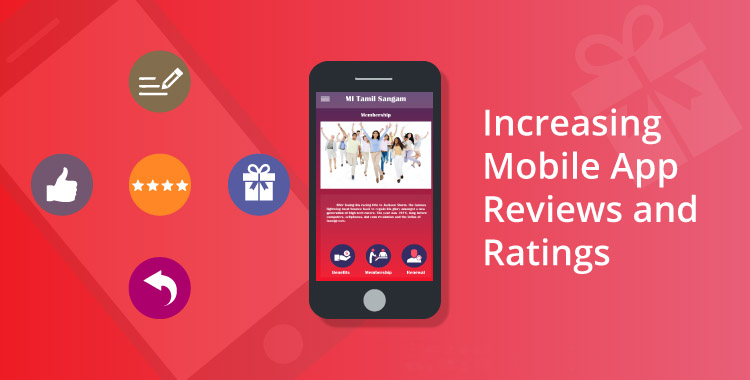Game App Marketing Strategy

The advent of game engines such as Unreal and Unity has revolutionized the world of game development, allowing developers to cut down on costs and time. These engines offer a powerful framework that accelerates the game development process, eliminating the need for developers to start from scratch. As a result, an abundance of mobile game apps can now be found in the Google Play Store and Apple App Store. In this blog, we will explore the transformative effects of game engines on mobile game development and discuss specific Game app marketing strategy that can help developers reach their target audience effectively.
Game App Marketing Strategy
1. Streamlining Game Development:
Game engines like Unreal and Unity have dramatically transformed the game development landscape by providing developers with pre-existing frameworks. This eliminates the need to create everything from scratch, reducing costs and development time significantly. By leveraging these engines, developers can focus more on creating captivating gameplay and immersive experiences rather than spending time on mundane coding tasks.
2. Market Research:
Developers looking to launch a new mobile game app must conduct thorough market research to understand the target audience, their preferences, and the competitive landscape. This data-driven approach allows developers to tailor their games to meet market demands effectively, ensuring a higher chance of success.
3. Soft Launch and Beta Testing:
Before a full-scale launch, it is essential to conduct a soft launch and beta testing phase. This allows developers to gather valuable user feedback, identify and fix any potential issues or bugs, and refine the game based on user experiences. Soft launches provide an opportunity to evaluate the game’s reception and make necessary adjustments before releasing it to a wider audience.
4. Competitor Analysis:
To stand out in a crowded market, developers must conduct a comprehensive analysis of their competitors. By understanding their strengths, weaknesses, and unique selling points, developers can position their game strategically, offering innovative features and captivating gameplay that differentiate their app from others.
5. Mobile Game App Testing:
Thorough testing of mobile game apps is crucial to ensure a seamless and enjoyable gaming experience for users. Testing should cover aspects such as gameplay mechanics, graphics, audio, controls, and user interface. Rigorous testing ensures that the game functions as intended across different devices and minimizes the risk of negative user reviews or low app store ratings.
6. App Store Optimization (ASO):
Improving the mobile game’s App Store Optimization is vital to enhance its visibility and discoverability. Key aspects include optimizing the app’s title, description, keywords, and screenshots, as well as encouraging positive user reviews and ratings. By implementing sound ASO strategies, developers can increase their app’s ranking in app store search results, attracting more organic downloads.
7. Social Media Ad Campaigns:
Running targeted ad campaigns on social media platforms allows developers to reach their specific target audience effectively. Social media platforms offer extensive user data that can be utilized to target users who are more likely to engage with the game. Engaging ad creatives and compelling content can pique the interest of potential players and drive downloads.
8. Cross-Promotion:
Cross-promotion is a powerful strategy that involves collaborating with other game developers or apps to reach wider audiences. By leveraging existing user bases, developers can expose their mobile game app to potential players who may have similar interests. Cross-promotion increases the outreach and visibility of the game app, fuelling growth with mobile marketing plans and fostering user engagement.
9. Influencer Engagement:
Engaging influencers in the gaming community can significantly boost the visibility and credibility of a mobile game app. Influencers possess dedicated followers who trust their opinions and recommendations. By collaborating with influencers, developers can tap into their fan base and generate buzz around their game, leading to increased downloads and user engagement.
10. Google Ads Universal App Campaigns (UAC):
Utilizing Google Ads through Universal App Campaigns (UAC) allows developers to reach a vast audience within the Google ecosystem. UAC leverages machine learning algorithms to optimize ad delivery, ensuring that the right message is displayed to the right user at the right time. By utilizing this powerful advertising tool, developers can maximize their app’s reach and drive installs.
11. Mobile App Reviews:
Positive reviews play a crucial role in influencing potential users’ decision to download mobile game app. Encouraging users to leave app reviews and responding promptly to feedback helps build a positive reputation and fosters user trust. Developers can also utilize app review platforms and incentivize users to leave reviews, further enhancing the app’s credibility.
12. Mobile Game Publishers:
For developers looking to scale their app’s growth and reach wider audiences, partnering with a mobile game publisher can be a strategic move. Publishers provide expertise in marketing, distribution, and monetization, allowing developers to focus on game development while benefiting from the publisher’s resources and networks.
13. User-Generated Content (UGC):
Leveraging User-Generated Content (UGC) can greatly enhance the promotion of mobile game app. Encouraging players to share their gameplay experiences, create fan art, or record and upload gameplay videos can generate organic interest and drive awareness of the game. Sharing and featuring UGC across social media platforms can create a strong community around the game, fostering user engagement and loyalty.
14. App Store Ratings Optimization:
Optimizing app store ratings is crucial for the success of a mobile game app. Moreover responding to user feedback, addressing issues promptly, and delivering updates that enhance the game experience can result in positive user reviews and higher ratings. Higher app store ranking and ratings improve the app’s overall visibility, attracting more users and increasing organic downloads.
15. Gamification and Community Participation:
Implementing gamification elements within the mobile game app, such as leaderboards, achievements, and multiplayer features, enhances user engagement and encourages community participation. Engaging with gaming communities through forums, social media groups, or game-specific events allows developers to connect directly with their target audience, gather feedback, and build a loyal player base.
Summary
The introduction of game engines like Unreal and Unity has adeptly transformed the mobile game development industry, enabling developers to build games more efficiently and effectively. By utilizing these engines, developers can focus on creating captivating gameplay and immersive experiences, saving time and resources. However, launching a successful mobile game app requires strategic marketing efforts such as market research, testing, optimization, good mobile app marketing campaign and effective promotion strategies. By following these tips, developers can reach their target audience, promote mobile app and maximize the potential success of their mobile game app in the competitive app stores.

